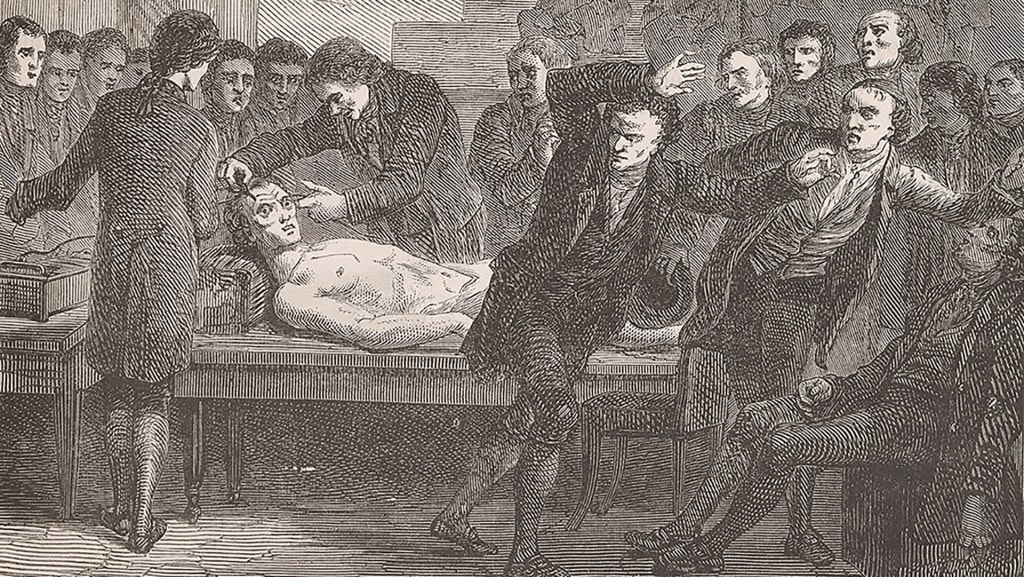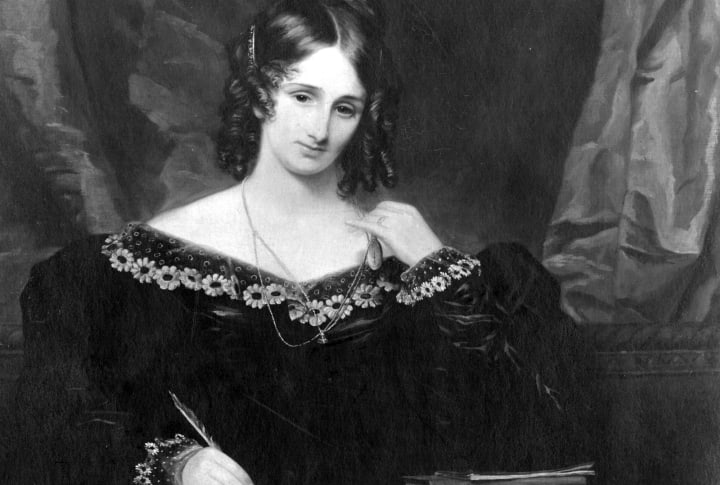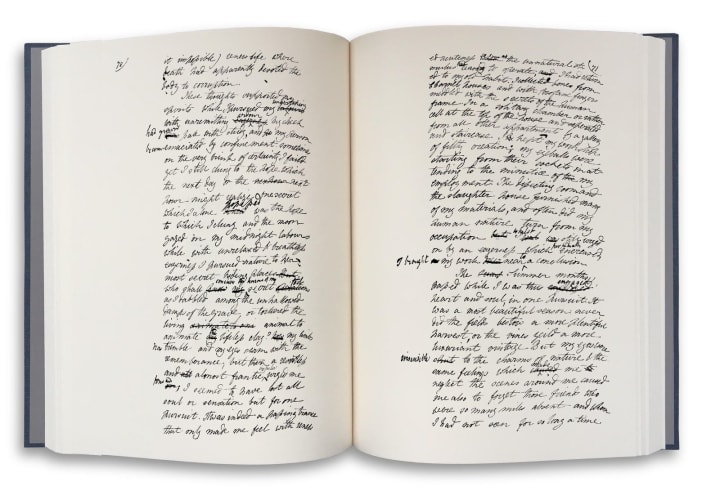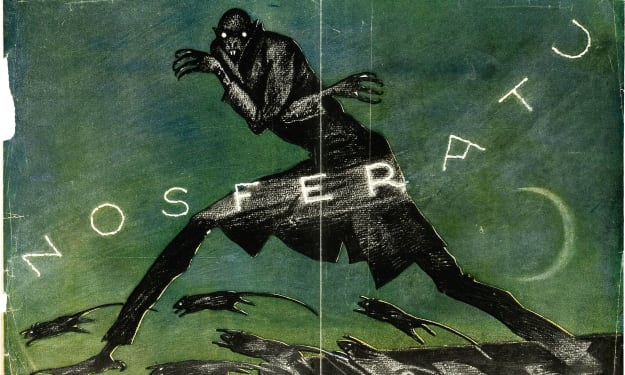"Frankenstein" by Mary Shelley
A Reading Experience (Pt.15)

I read “Frankenstein” by Mary Shelley primarily because it was on the syllabus for GCSE Literature whilst I was at school. I found it on a reading list online and thought I would spend the summer trying to understand the angles of it, even if we didn’t study it - I thought it was a good exercise in my ability to read and understand an older text. I was thirteen years’ old and it would prove one of the most intense experiences of my life. It took me only one day to read the entire book. I just could not drag myself away from these extensive narratives. Over ten years’ later when I would be in the midst of teaching this book, I found I had the same passion and the same vigour for the novel I had felt in my teen years. It made me feel almost so young again. This book would become to a thirteen year old what a best friend that accepts a freak becomes to the freak. It became a statement of power. It became to me what I had never really had too much of before - it would become my friend. Especially the Monster. The Monster would be my very best friend.
This is primarily why the Monster was my favourite character. The narrative of the Monster proves to be one of the very best sections of the entire novel. Though I love the icy descriptions and danger of Robert Walton’s section and though I thoroughly enjoy the way in which nature and science constantly torments the manipulative wants of Victor Frankenstein, the Monster’s narrative is something to be revered. It is one of the best narratives in modern literary history in my opinion. The Monster’s narrative begins in Chapter 11 and it is this chapter which I also believe is one of the greatest chapters ever written. It does the difficult job of explaining the discovery of sunlight, moonlight, weather, the earth and it really does go into detail of the experience of what it is like to be ‘born’ or to first ‘see’. The discovery of these things we as humans take as normal, to the Monster, are completely new. He discovers language, he learns to read. But it is that first chapter of his narrative, Chapter 11, that sends shivers down your spine. What makes the Monster so great is the reader’s ability to understand him. When Frankenstein talks, he often talks in long drawn out contemplations of philosophy and science that it is often difficult for the reader to associate with his torment. With the Monster, he speaks plainly and with emotions we understand and associate within ourselves. He is far more relatable than Frankenstein and yet, he is not actually a human being. Be that as it may, it seems that the Monster is far more human than Frankenstein in all aspects. Unfortunately, the Monster’s fault is his inability to gain control of himself. This is both through the control that Frankenstein has over him - almost a patriarchal or autocratic rule that he has once the Monster returns to him. But then there is also the side that the Monster is unable to control his own emotions. His feelings of extreme anger cause the death of William Frankenstein and Elizabeth Lavanza and yet, his anger is a direct result of how he is treated by Victor Frankenstein. I believe the Monster represents the almost monstrous part of Victor Frankenstein himself. Like Dr Jekyll, I believe the Monster represents a section that Frankenstein wants to get rid of in himself. This includes the willingness towards his own emotions. As we see that the Monster is unable to control the reaction towards his emotions, Victor seems to have more control on how he reacts to his growing feelings.

A big theme in the book is reason over emotion. I have recognised this since it is Victor Frankenstein that keeps putting off the more emotional aspects of his life and when he does get around to them, it has terrible consequences as if he is too late to salvage them. He often insulted his mother and father’s intelligence but when his mother dies, it proves catastrophic to Frankenstein’s state of being. He hardly mentions his brothers but when William dies, it is like Victor had loved him all of his life, though we never really hear too much about him. When it comes to Elizabeth, his mother and father are constantly telling them to marry but Frankenstein puts off his love for her for a while as he completes his project. But when he does, he still cannot marry her since the entire family happens to be in grave danger. When Elizabeth and Victor do marry, Elizabeth is murdered on her wedding night. It sends Victor into deep despair. Victor’s father dies because of Victor’s ability to be ‘late’ and not keep an eye on his friend, Henry. He ends up in jail and his father must save him. If Victor had a close relationship with his father, he would be able to tell his father of the Monster and Elizabeth may still have lived and his father, who died from a heart attack when he heard Elizabeth had been killed, would’ve still been alive. It impacts how you read the book because of the way the characters view it differently. We’ve got Frankenstein who values reason over emotion and then we’ve got the Monster who clearly wants to understand emotion and then reason.
This book means a lot to me because not only have I read it numerous times, I’ve also taught it a lot and I’ve analysed it pretty much to death. My latter reading experiences of the gothic were heavily influenced by the things I had found in “Frankenstein” because in my views of the 19th Century gothic genre, that was written the earliest. I kept going back to it to see what kind of influence it had over the latter novels towards the fin de siecle. Through my re-readings of this book, I have come to realise that there is a massive influence that this novel not only had on the 19th Century Gothic, but also on the monstrosity and graphic writing during the war time. The very best thing about this book though will always be how it explains the Monster’s discovery of various points of the world. It is the most beautiful chapter in the whole book and one of the greatest chapters ever written.

I think far more people should read this book because a lot of people think they know what it is about because of culture and movies, but it is actually completely different to what you think. However, the book has been widely analysed and read purely for its quality of being the first full length novel to really show us human responsibility gone horribly wrong. It is analysed for its stunning look into the reason and emotion battle in the soul. But upon my next re-read,I would like to investigate more into Frankenstein’s childhood and why he grows up to be the man he does. How do these various tragedies impact him and why he suppresses this torment until it is too late to do anything about it.
“The fallen angel becomes a malignant devil. Yet even that enemy of God and man had friends and associates in his desolation; I am alone.”
"Frankenstein" by Mary Shelley
About the Creator
Annie Kapur
200K+ Reads on Vocal.
English Lecturer
🎓Literature & Writing (B.A)
🎓Film & Writing (M.A)
🎓Secondary English Education (PgDipEd) (QTS)
📍Birmingham, UK






Comments
There are no comments for this story
Be the first to respond and start the conversation.